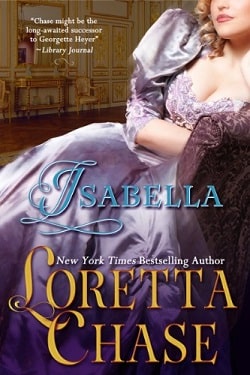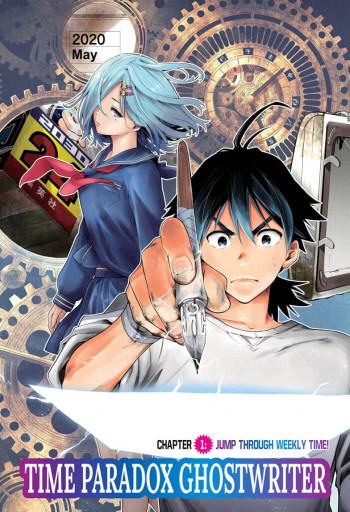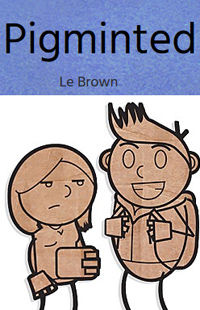In her delightful Regency romance, Isabella, Loretta Chase masterfully weaves a tale that is both charming and thought-provoking, exploring themes of independence, societal expectations, and the complexities of love. Set against the backdrop of early 19th-century England, the story revolves around Isabella Latham, a 26-year-old heiress who finds herself unexpectedly thrust into the London social scene while accompanying her younger cousins on their debut. What unfolds is a captivating narrative that not only entertains but also challenges the conventions of its time.
Isabella is a refreshing protagonist, embodying the spirit of a modern woman trapped in a historical context. Her independence and practicality set her apart from the typical Regency heroine. At an age when many women are already married, Isabella has resigned herself to a life of singlehood, focusing instead on her duties as a guardian to her cousins. This initial characterization allows readers to connect with her on a deeper level, as she grapples with the expectations placed upon her by society and her own desires.
The introduction of the Trevelyan cousins, Basil and Edward, adds layers of complexity to Isabella's life. Basil, the charming rake, represents the allure of adventure and passion, tempting Isabella to step outside her comfort zone. His character is a classic embodiment of the Regency rogue, complete with a devil-may-care attitude and a penchant for trouble. Chase's portrayal of Basil is nuanced; while he is undeniably attractive, his flaws serve as a reminder of the dangers of superficial attraction. This dynamic creates a palpable tension as Isabella navigates her feelings for him.
On the other hand, Edward Trevelyan, the seventh Earl of Hartleigh, presents a stark contrast to his cousin. He is depicted as handsome yet arrogant, a man who initially seems to dismiss Isabella's worth beyond her dowry. However, as the story unfolds, Chase skillfully reveals Edward's vulnerabilities, particularly his role as a guardian to his orphaned ward. This duality in Edward's character adds depth to his relationship with Isabella, as she begins to see him not just as a potential suitor but as a man capable of genuine affection and responsibility.
One of the most compelling aspects of Isabella is its exploration of the theme of choice. Isabella's journey is not merely about choosing between two suitors; it is about discovering her own identity and desires amidst societal pressures. Chase deftly illustrates the internal conflict Isabella faces as she weighs her options, highlighting the societal expectation for women to marry and the personal desire for autonomy. This theme resonates deeply, making Isabella's eventual choices feel both empowering and authentic.
The pacing of the novel is well-executed, with a blend of witty dialogue and poignant moments that keep readers engaged. Chase's writing is imbued with a sense of humor that lightens the narrative, making it a delightful read. The banter between Isabella and Edward is particularly enjoyable, filled with sharp wit and underlying tension that hints at their growing attraction. Chase's ability to balance humor with emotional depth is a testament to her skill as a storyteller.
Moreover, the supporting characters in Isabella are well-developed and contribute significantly to the overall narrative. Isabella's cousins, while initially appearing as mere plot devices, evolve into relatable characters who embody the innocence and excitement of youth. Their interactions with Isabella serve to highlight her protective nature and her role as a mentor, further emphasizing her independence and strength.
Chase's attention to detail in her world-building is commendable. The Regency setting is vividly brought to life, with descriptions of lavish balls, societal gatherings, and the intricate dynamics of class and wealth. This immersive quality allows readers to fully engage with the story, transporting them to a time when social status dictated one's fate. The historical context enriches the narrative, providing a backdrop that enhances the characters' struggles and triumphs.
In comparison to other works in the genre, such as Pride and Prejudice by Jane Austen or The Duke and I by Julia Quinn, Isabella stands out for its strong, independent heroine and the nuanced portrayal of male characters. While Austen's Elizabeth Bennet navigates societal expectations with wit and intelligence, Isabella's journey is marked by a more profound exploration of personal choice and self-discovery. Similarly, Chase's characters possess a depth that elevates them beyond mere archetypes, making their relationships feel genuine and relatable.
Overall, Isabella is a triumph of Regency romance, blending humor, heart, and a strong feminist message. Loretta Chase has crafted a story that not only entertains but also invites readers to reflect on the nature of love, independence, and the choices that define us. Isabella Latham is a heroine for the ages, and her journey will resonate with anyone who has ever grappled with the expectations of society while seeking their own path. This novel is a must-read for fans of the genre and those looking for a refreshing take on the classic Regency romance.




![Food First, First Love Comes Second [Compteted Edition]](/upload/pic/manga/food-first--first-love-comes-second--compteted-edition-.webp)








![Perfect Marriage Revenge [Official]](/upload/pic/manga/perfect-marriage-revenge--official-.jpg)










Reviews 0
Post a Reviews: